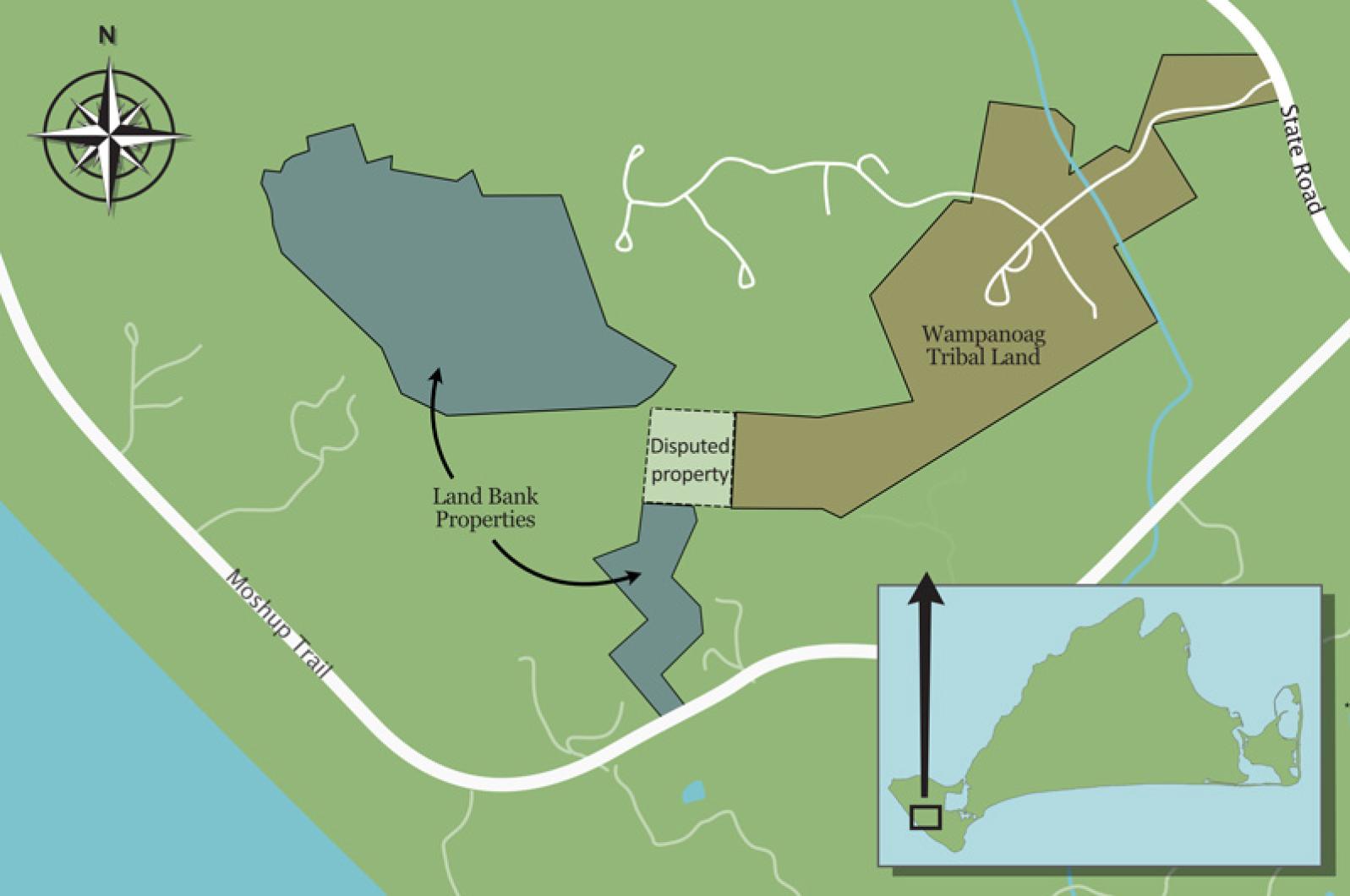A state appeals court panel has sided with Vineyard Conservation Society in a years-long legal tussle over 5.7 acres of land in Aquinnah.
On Thursday, the appeals court judges affirmed a Dukes County Superior Court judge’s opinion that VCS is the rightful owner of the parcel off Moshup Trail that once belonged to Louisa Devine. Last year, more than 20 descendants of Ms. Devine appealed the superior court’s decision, but the appellate court judges ruled that the title properly ends with the conservation society.
VCS acquired the landlocked property known as “Lot 240” in 2013, part of a larger gift from Caroline Kennedy and her family’s Red Gate Farm. The conservation group claimed it owned the lot through two different chains of title that extended back to the original lot partitions of Wampanoag common lands in the late 19th century.
VCS executive director Samantha Look said the nonprofit wants to protect the land and keep it in a natural state.
“Because of Moshup Trail's relative isolation, protection of its precious natural ecology and spectacular scenic resources is still possible,” she wrote in a statement. “The people of Aquinnah, together with Island conservationists, have been working for decades to save what's left of this fragile and globally rare habitat.”
The long-running legal battle started in 2017, when VCS sued the family heirs over the property’s ownership. The technical case went to trial in Dukes County Superior Court in 2022, where judge Sanders found in favor of the Vineyard Conservation Society.
The descendants appealed that decision, and in December, the conservation society and the descendants of Ms. Devine made their arguments over the property’s ownership to the appeals court.
The descendants claimed that the Dukes County Superior Court judge should have considered more evidence in trying to decipher the intent of deeds dating back to the 1930s and 1940s.
Superior Court judge Janet Sanders ruled in 2022 that Louisa Devine’s daughter gave all of the land she owned in Gay Head, the previous name for Aquinnah, to Horace Devine. Horace eventually gave his land to Henry Cronig and the chain of title eventually ended with Vineyard Conservation Society.
The descendants contended that Horace did not have an interest in Lot 240 and couldn’t have conveyed it to Mr. Cronig, who would go on to be the largest landowner in Gay Head. The heirs’ also claimed that Mr. Cronig never conveyed the property to anyone, indicating he didn’t believe he owned the property.
An initial chain of ownership proposed by VCS from Louisa Devine's daughter to Ephraim Mayhew was found invalid and the superior court denied the nonprofit's request for summary judgment. But the Horace Devine and Henry Cronig chain stood up in the superior court proceedings.
Much of the arguments in the appeals case revolved around the intent of the language used in the deeds. Eliza Devine’s deed had language that said “all the right, title and interest which I have in the land of Gay Head” in giving land to Horace. Similar language was used then in the transfer to Mr. Cronig.
The appeals court determined that this broad language did not carve out any exceptions for properties that the Devine family may have not known it owned.
“To be sure, the language of the deeds is not exacting, and the grantors took risks using it,” the panel wrote. “However the language of a deed is construed most strongly against the grantors... and if in using such broad language the heirs transferred property they did not know they owned, that was the result of the plain language they chose to use.”
The descendants' attorney Jonathan Polloni said the court deferred to language in a deed dealing with Mr. Cronig, a real estate tycoon of the time. He felt that Mr. Cronig used this language in order to cast a wide net.
“That was what the court relied on,” Mr. Polloni said. “This broad language in the deed…[Mr. Cronig] clearly understood what he was doing.”
The appeals court also found that the Dukes County court did consider circumstances including tax takings in the case, and found no error in the lower court’s conclusion.
Mr. Polloni was unsure if the family would seek a further appeal.
Editor's note: This story has been updated with comments from Vineyard Conservation Society and the descendants' attorney.







Comments
Comment policy »